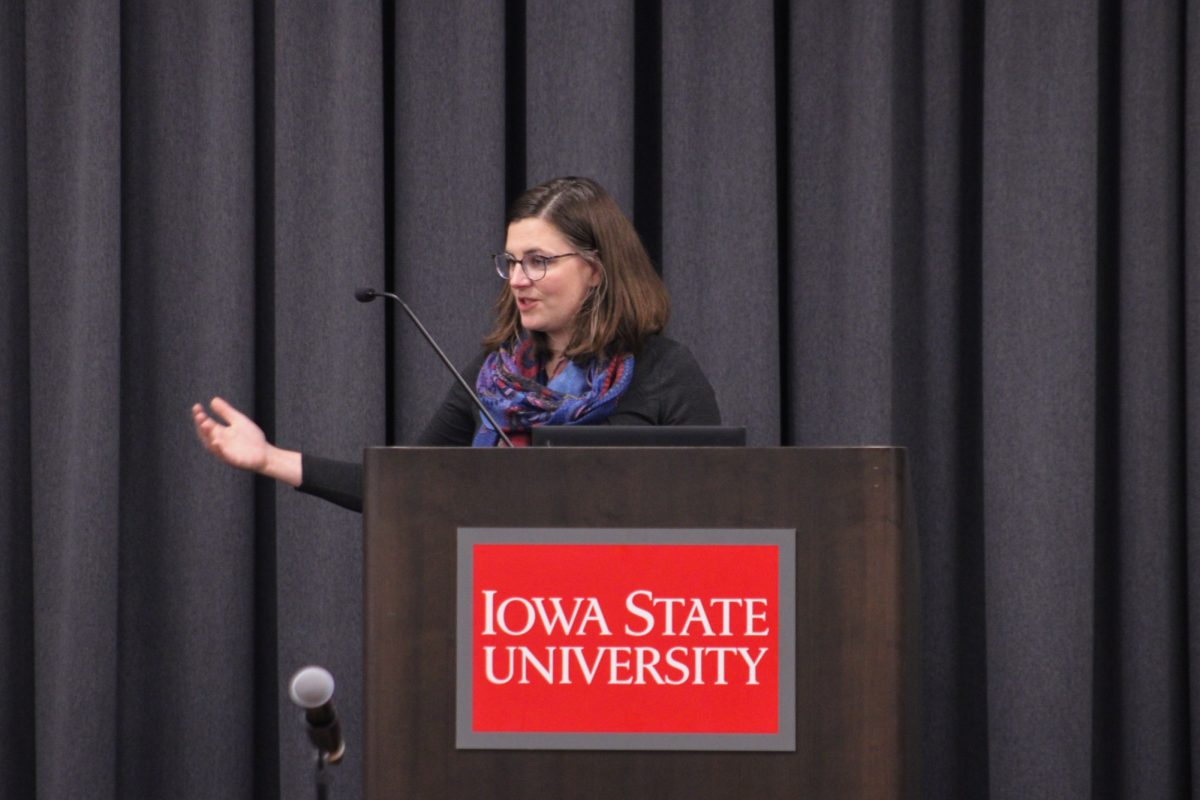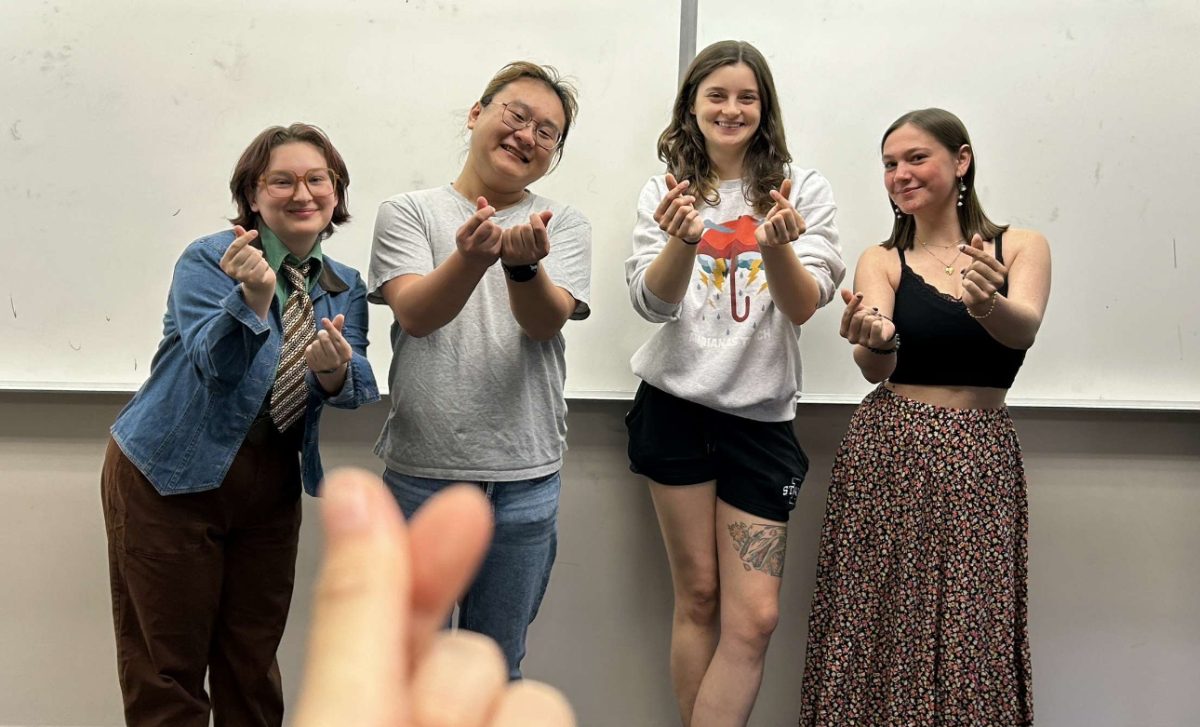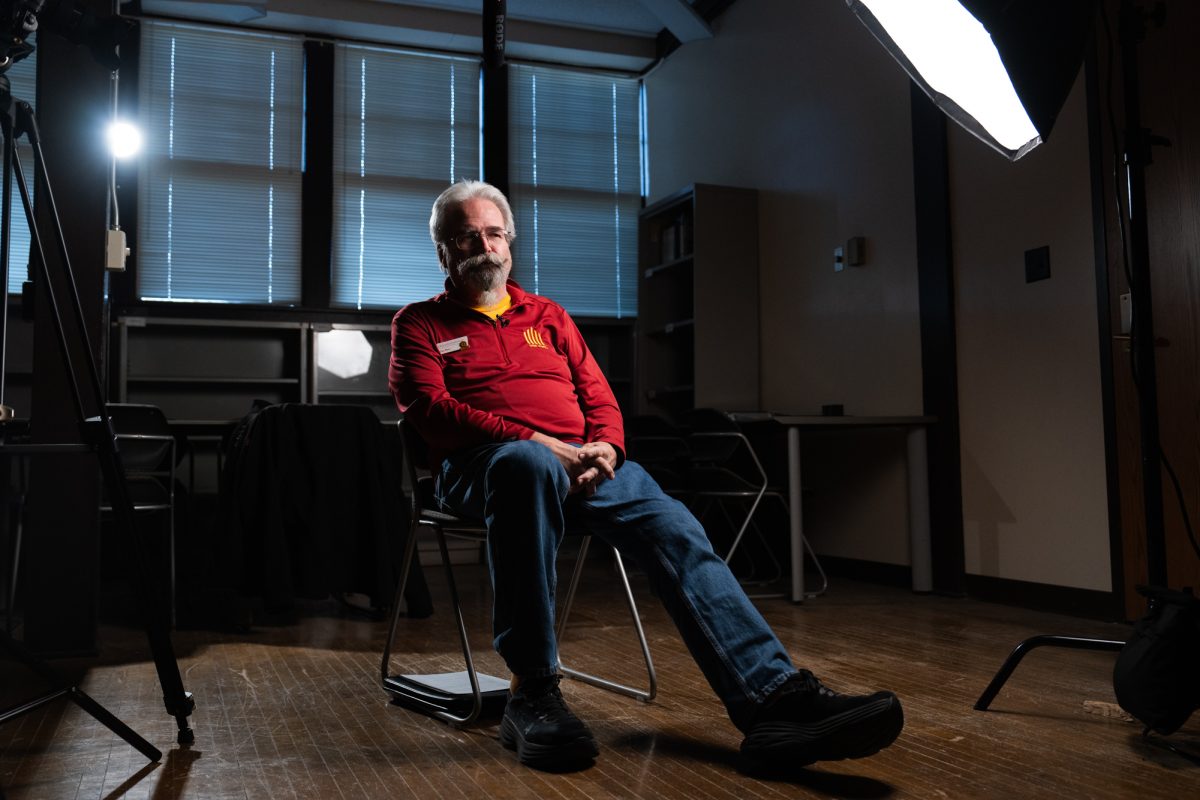A new lecture was brought to the Iowa State Lecture Series this week, co-sponsored by the department of sociology and criminal justice and the Committee on Lectures: “Extractive Industry, Historic Disinvestment, and the Future of Rural Communities,” by Ryanne Pilgeram, PhD.
Regenerative Economies Manager of The Wilderness Society, Pilgeram works to promote sustainable and natural resource extraction that support and uphold communities. She is also the author of “Pushed Out: Contested Development and Rural Gentrification in the US West.”
The lecture highlighted Pilgeram’s historical industrial findings, which led her to recognize the growth of North Idaho. Pilgeram used the lecture to tell the story of a mill town that turned into an upscale community.
Through all her historical findings that industrialized the town of Dover, Idaho, Pilgeram remarked on the origins of the town, which allowed her to truly understand the deeper historical context.
“The reason I was struggling was because I was starting my story too late,” Pilgeram said.
Dover, Idaho, is the native home of the Kalispel Tribe, which has wintered in this area for at least 2,000 years. However, this ended in the 1930s when Idaho passed laws that forcibly removed them from the land. After gaining this information, Pilgeram was able to piece together this community’s historical element of the “spatial fix.”
“The relationship between the Kalispel People and their ecosystem led to this world that was unlike any other,” Pilgeram said. She went on to explain how this can explain the very fertile land, and amazing agricultural growth, that was removed to build upon.
The lecture gave a new perspective on industrialization and modernization throughout the years. Audience members were extremely engaged, and the Q&A session was vibrant and informative.
Shaya Kraut, a graduate student, was very impressed by Pilgeram’s ability to gather so much information from her original research question.
“She realized how complicated it was, and as a researcher and a social scientist, she was able to kind of bring it all together,” Kraut said. “I loved how she described it.”
Another graduate student, Alex Klein, felt that the lecture was really engaging through the dynamics of the presentation, as well as from a sociological standpoint.
“I really thought that she covered the idea of uneven development well, which in sociology is a concept about how communities create two different income brackets within a space basically,” Klein said. “She really brought that out, and did a good job of explaining that to someone who’s never had experience with that area.”
This lecture not only spoke to a lost history but also to new rising communities that have the choice to be sustainable and create support where people need it most.
To find more information on Ryanne Pilgeram, visit this website.
To find more information on upcoming events by the ISU Lecture Series, visit their website.








